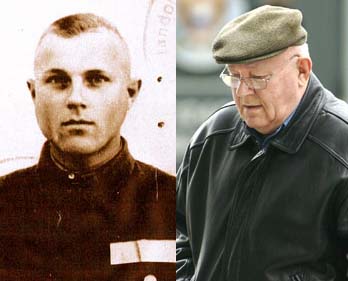
The current trials involving alleged Nazi concentration camp guards provoke some complex questions about what constitutes justice. The question is not so much should they be punished, but rather what form that punishment should take. I discuss this in greater detail a recent post for Moment Magazine.
But there are some other areas which I didn't explore: the concept, for instance, of collective guilt. If the families of these former Nazis knew about their father's/grandfather's past, and didn't do anything, should they be held accountable as well? If so, in what way? Should they also be jailed? If they didn't know, should they be pressured to take responsibility for their father's/grandfather's actions? What what form would that pressure take?
And what do these trials offer Holocaust survivors and their families today? A spokesperson for Yad Vashem suggests that it offers some modicum of justice. But again, what kind of justice? All of the accused are elderly and many in ill health. If we morally can't hold their families responsible for their actions, then there is no long-term punishment for these men. We won't be cutting them off from life or happiness prematurely. Yes, they will at long last be imprisoned, but it is only temporary. Others may argue that these trials demonstrates that Germany is exorcising its sins. But few people would argue that Germany hasn't done enough to come to terms with its past. Would these trials really mean the difference between forgiving Germany or not? Would it mean opening up the discussion about the Holocaust in the way that the Eichmann trial did in the 60s? Again, I think not.
I certainly don't have all the answers, (although I do make some suggestions) but would like to hear what some of you think.

1 comment:
If Demjanjuk has no assets and we speak out against genocide in his name, that could accomplish the objective of fighting heinous crimes with a societal good. A brilliant idea! However, shouldn’t Demjanjuk be, himself, subject to some punitive measures? Living in a jail cell is certainly more uncomfortable than living at home. Wouldn’t justice be served by punishing Demjanjuk while, at the same time, forging an organization that would speak out against the very crimes that Demjanjuk committed?
Post a Comment